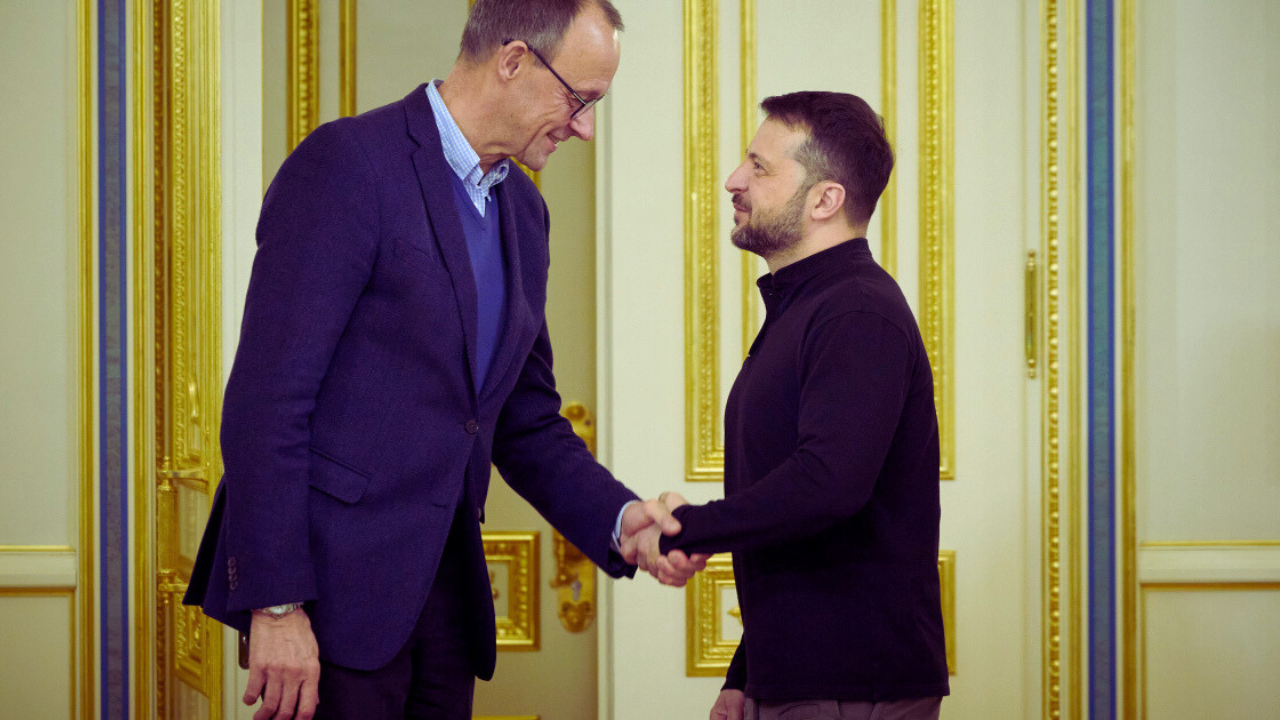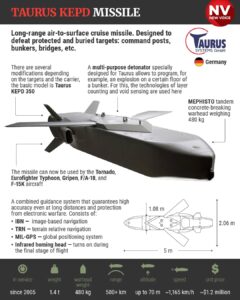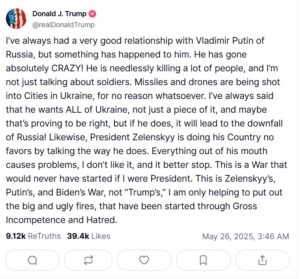Ukrainian President Volodymyr Zelensky’s scheduled visit to Berlin on Wednesday marks a potential turning point in the ongoing conflict with Russia, as Germany appears ready to authorize the transfer of long-range Taurus cruise missiles to Ukrainian forces. The anticipated meeting between Zelensky and German Chancellor Friedrich Merz is expected to culminate in a significant policy announcement that could fundamentally alter the strategic balance of the war.
The potential German decision represents a dramatic departure from the stance maintained by former Chancellor Olaf Scholz, who consistently refused to supply German-made missiles to Ukraine despite mounting pressure from Kyiv and other Western allies. The shift comes as Western assessments indicate an escalating pattern of Russian attacks and Moscow’s continued rejection of ceasefire proposals.
In remarks delivered at a media panel preceding Zelensky’s visit, Chancellor Merz outlined a comprehensive removal of restrictions on Western weapon ranges supplied to Ukraine. According to Merz, major allies including Britain, France, Germany, and the United States have eliminated previous limitations on the operational range of weapons provided to Ukrainian forces.
“There are no longer any restrictions on the range of weapons supplied to Ukraine—not by Britain, France, or by us. There are also no restrictions from the United States”, Merz stated. “This means that Ukraine can now defend itself, for example by attacking military positions within Russia. Until recently it could not do this, and apart from very few exceptions, it did not do so”.
The anticipated German authorization builds upon earlier policy indications from Merz, who signaled the possibility of Taurus missile transfers as early as April 13, even before his appointment received formal Bundestag approval. The issue gained momentum during a high-level diplomatic meeting in Kyiv on May 9, when leaders from Germany, Britain, France, and Poland convened to discuss expanded military support strategies.
The potential deployment of Taurus missiles would represent a significant capability enhancement for Ukrainian forces. With an operational range of 500 kilometers, the German-made cruise missiles exceed the reach of both British Storm Shadow missiles and American-supplied ATACMS systems currently in Ukrainian arsenals. This extended range would theoretically enable Ukrainian forces to target strategic locations deep within Russian territory, including Moscow and other central cities.
The European momentum toward expanded military support unfolds against a backdrop of uncertainty regarding continued American assistance. Since President Donald Trump’s return to office, no new military aid packages for Ukraine have received presidential approval, despite $3.85 billion in Congressional allocations awaiting release. Ukrainian forces currently operate with weapons from final deliveries authorized under the previous Biden administration, with no additional shipments confirmed.
This American policy uncertainty has generated concerns about emboldening Russian President Vladimir Putin to intensify military operations against Ukraine. However, Trump’s recent communications have indicated a more confrontational stance toward the Russian leader than previously demonstrated.
In a June 26 social media post on Truth Social, Trump delivered unusually sharp criticism of Putin’s conduct. “I always had very good relations with Vladimir Putin from Russia, but something happened to him. He just went completely crazy!”. Trump wrote. “He is killing many people unnecessarily—and it’s not just about soldiers. Missiles and drones are being fired at cities in Ukraine for no reason at all”.
The American president continued with warnings about Russian territorial ambitions: “I always said he wants all of Ukraine, not just part of it, and maybe this is proving true—but if he acts this way, it will lead to Russia’s downfall!”.
Despite this criticism of Putin, Trump also directed pointed remarks toward the Ukrainian leadership. “President Zelensky is not helping his country when he speaks the way he speaks. Everything that comes out of his mouth creates problems. I don’t like it, and it must stop”, Trump stated.
Trump characterized the conflict as resulting from previous administrative failures, declaring: “This is a war that would never have started if I had been president. This is Zelensky’s, Putin’s, and Biden’s war—not Trump’s. I’m just trying to extinguish the big and ugly flames that were ignited due to serious incompetence and hatred”.
The evolving Western response occurs as Russian military operations continue targeting both military and civilian infrastructure across Ukraine. International pressure for stronger countermeasures has intensified alongside growing European Union discussions about compensating for potential reductions in American military support.
Current battlefield dynamics suggest a fundamental shift in the conflict’s geographical scope. Ukrainian drone operations have successfully penetrated Russian airspace, reaching Moscow and demonstrating previously unseen vulnerabilities in Russian air defense systems. These developments have reportedly prompted security concerns within Russian leadership circles.
Intelligence reports suggest Putin may be considering relocating from Moscow to a fortified compound in the Valdai region, potentially indicating recognition of increased security risks to the Russian capital. The prospect of more sophisticated missile systems reaching Ukrainian forces raises additional questions about Moscow’s defensive capabilities.
The strategic implications of potential Taurus missile deliveries extend beyond immediate tactical advantages. Such weapons would enable Ukraine to adopt more offensive operational approaches, potentially targeting critical infrastructure and command centers within Russian territory. This capability shift could force Russia to divert defensive resources and alter its military calculus.
Britain and France have already provided Ukraine with Storm Shadow cruise missiles, which have been employed against Russian military targets with reported effectiveness. Germany’s potential authorization of Taurus systems would represent the final major European power joining this advanced weapons provision effort.
The timing of Zelensky’s Berlin visit reflects careful diplomatic coordination as European allies seek to present unified support for Ukraine. The meeting with Chancellor Merz occurs as Germany assumes increased leadership in European security affairs, particularly given uncertainties about sustained American engagement levels.
Military analysts suggest that expanded long-range strike capabilities could significantly impact Russian defensive postures and potentially influence Moscow’s willingness to engage in meaningful diplomatic negotiations. The psychological impact of bringing the conflict to Russian territory may prove as significant as the tactical military advantages.
The anticipated German announcement represents a culmination of months of internal deliberation within the governing coalition and consultations with European partners. Previous German reluctance centered on concerns about escalation and the potential for German-made weapons to strike Russian territory, barriers that appear to have been overcome.
As Zelensky prepares for Wednesday’s crucial Berlin meeting, the potential authorization of Taurus missile transfers could mark a decisive moment in Western military support for Ukraine. The decision would align Germany with its European partners in providing Ukraine with capabilities to conduct operations across the full spectrum of the conflict, potentially reshaping the war’s trajectory and Russia’s strategic calculations.




